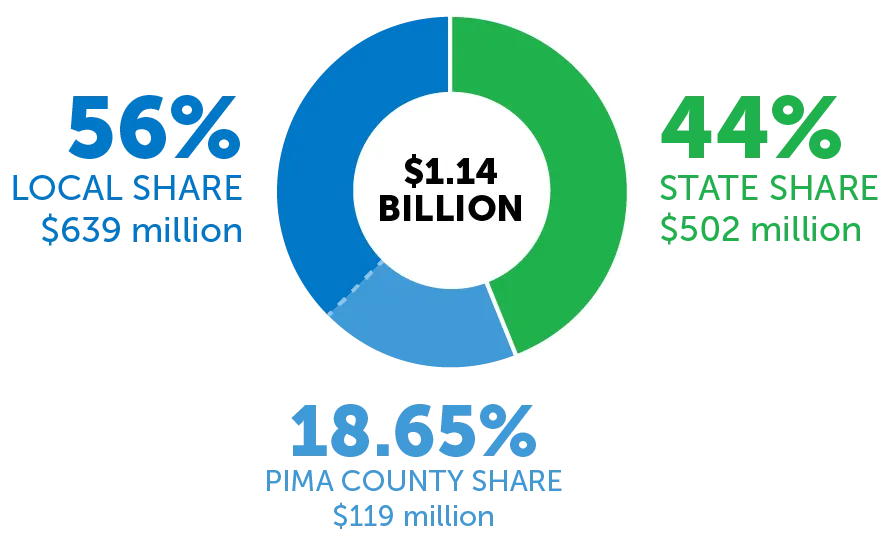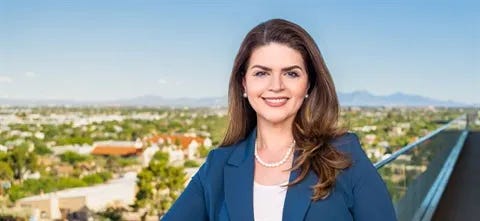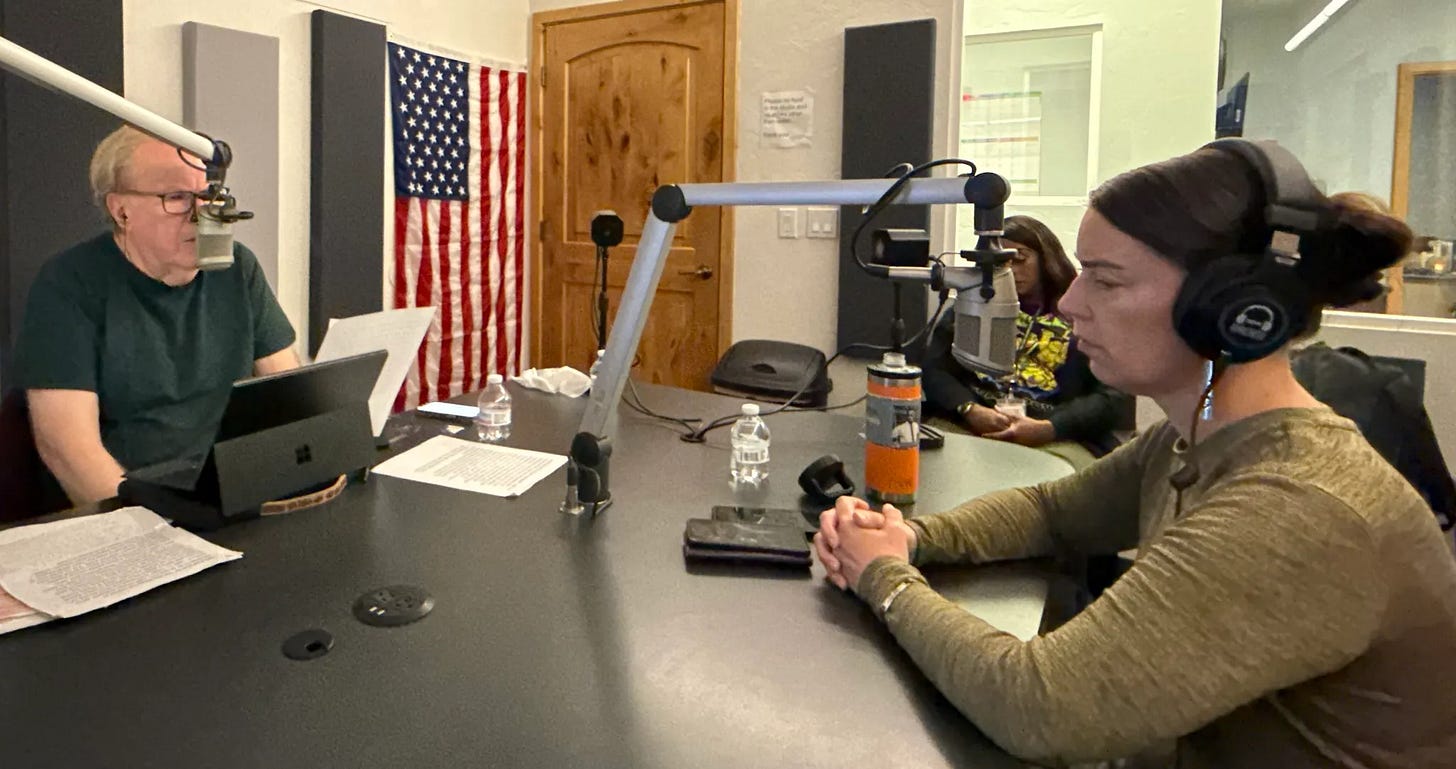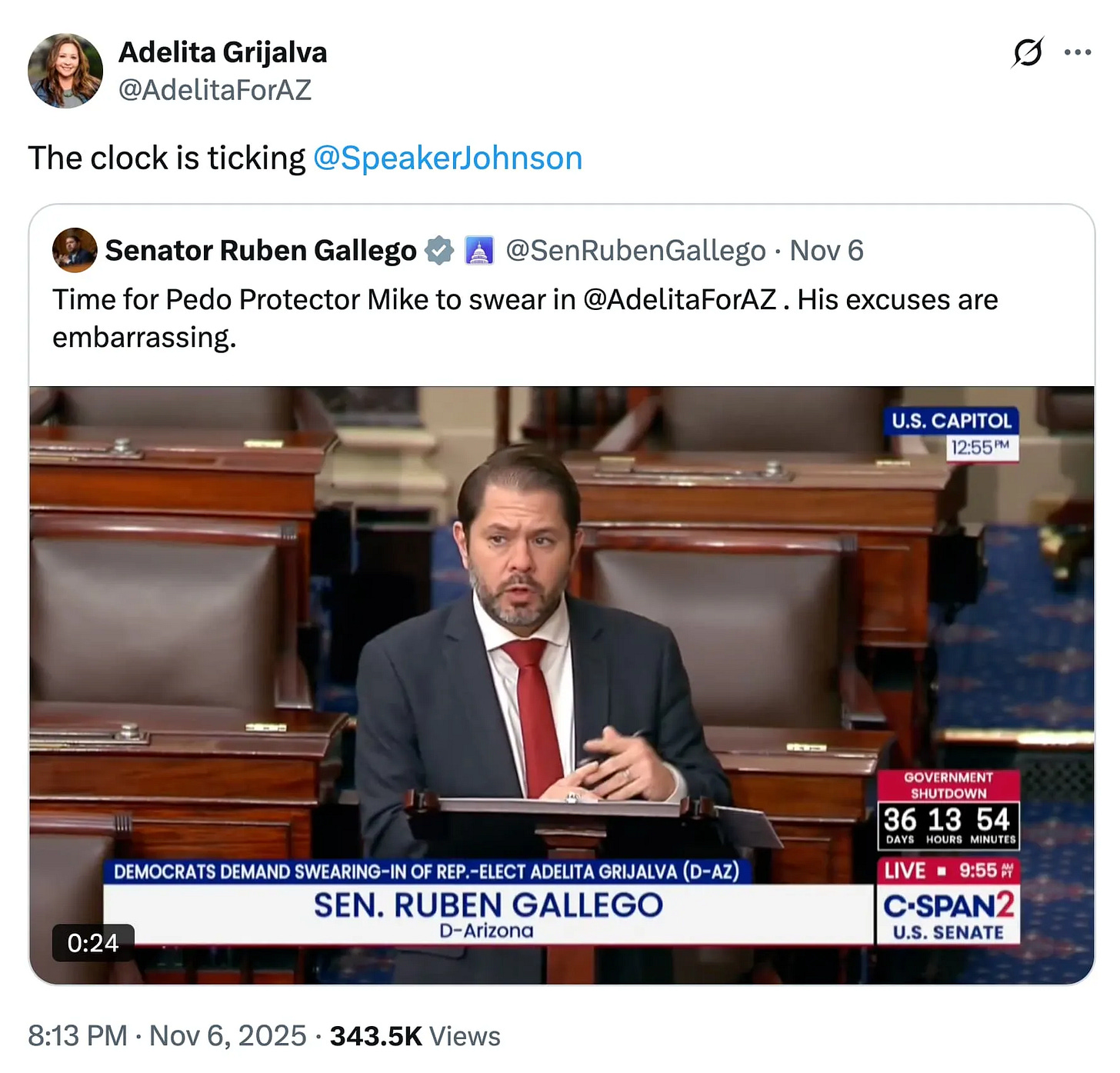The “we’re good” era
A temporary truce? ... A new congresswoman? ... And journalism?
When Pima County Supervisor Rex Scott pushed back on criticism of the county’s response to the fentanyl crisis and chronic homelessness last week, many expected another shoe to drop once Tucson Mayor Regina Romero returned from a conference in Brazil.
Some even wondered whether next week’s planned joint meeting would get scrapped altogether.
Romero responded Saturday with a lengthy statement outlining the city’s efforts to tackle the public health crisis — just as Scott did last week in defense of the county — but she didn’t escalate the rhetoric.
Instead, the two-term Democrat said she didn’t think it was useful “to relitigate the past.”
Her focus now is on next week’s joint meeting between the city council and the board of supervisors. While the agenda hasn’t been released, Romero made it clear she wants to talk about the roughly $31 million the region has received from nationwide opioid settlements and $23 million that hasn’t been allocated.
“We need to use opioid settlement funds to create the detox and treatment services we need, because we all know incarceration is not the goal, treatment and recovery is,” Romero said on Saturday.
It wasn’t an apology for her earlier criticism of Pima County, but it did sound like an attempt to reset the tone.
“I understand there is much frustration right now. I feel it. My colleagues on the Council feel it. Our police officers feel it and our residents feel it. My responsibility as Mayor is to advocate for the needs of our residents and respectfully request that Pima County do more,” Romero said in her statement.
To be fair, Scott said something similar last week.
It’s still unclear how far that $23 million will go if used strictly for treatment — or how many people could actually be served each year. Treatment needs vary from person to person, ranging from outpatient programs with frequent drug testing to inpatient care requiring medication to safely stop using opioids.
It’s also worth noting that the $23 million — along with the $8 million that has already been earmarked by the city, county, and other local governments — represents a fraction of the entire amount the region will eventually receive.
A regional setup committee — which includes representatives from Tucson, Pima County, South Tucson and Marana — has already set a goal of spending down the balance over the course of several years.
County documents provided to the Tucson Agenda note that recipients of the opioid funding do not know when they will receive payouts as part of the settlement.
The state as a whole is expected to get $1.14 billion under the multi-year settlement, divided among the state, counties, cities, and towns. Pima County’s share is about $119 million — although it will be several years before it receives the total amount.

So yes, everyone’s planning to play nice at the meeting — but that’s only half the problem.
While the Tucson City Council and Pima County Board of Supervisors will be at the table, a few key players might not have a seat.
Romero’s Safe City Initiative calls for tougher enforcement of current laws — especially public drug use and related crimes — and alongside it, more prosecutions. That naturally brings in Pima County Attorney Laura Conover, the Public Defender’s Office, Sheriff Chris Nanos and his jail, the adult probation department, and a web of private contractors tied to both city and county agencies.
During an interview on the Bill Buckmaster Show on Friday, Conover told Bill (and guest-host Joe) that she plans to be part of the meeting — whether she gets to chair it or not.
“As the prosecutor for the county, I’m also the attorney to the Board of Supervisors,” Conover said. “I anticipate I probably will be present for such a critical and important meeting at the same time.”
Conover said she’s heard community pressure to prosecute more fentanyl-related crimes, but she emphasized the need to balance resources — including the ongoing prosecution of violent crime.
“The idea that every single fentanyl pill could be prosecuted as a felony in a jury trial is simply impossible. Or to put another way, we could try to do that, and then we wouldn’t be able to do any of the violent or victim crime, and then we still would fail to get every single pill accounted for,” Conover said.
While some cases can be resolved through plea deals rather than trials, Conover warned that forcing people struggling with drug addiction into inpatient treatment risks undoing more than 50 years of judicial reform.
“We don’t want people suffering and frankly, dying on our streets. And at the same time, we have to be extraordinarily careful about people’s liberty and constitutional rights. We don’t want to go back to those, like locked asylums from the horror stories from the 50s and 60s. We can’t slip back to that,” Conover said.
Next Monday’s joint meeting will focus on fentanyl and chronic homelessness, but expectations remain murky. Even if city and county leaders find common ground, there’s the question of how to pay for new programs midway through the fiscal year.
With the city facing a $24 million budget shortfall and the county sitting on less than $1 million in contingency funds, it’ll be interesting to see how any agreement reached next week actually moves forward.
End in sight?: It’s starting to look like the U.S. Senate has a deal to end the government shutdown, although the House still has to decide whether to sign off on it, per USAToday. That deal also might end the delay in swearing in Congresswoman-elect Adelita Grijalva, who has been waiting for more than seven weeks. House Speaker Mike Johnson previously said he’d swear in Grijalva when the shutdown ends. Now that a potential deal is on the table, Grijalva says she’s heading back to D.C. “to hopefully get sworn in.”
Long way from home: A Tucson physical therapist was deported to Laos last week, five decades after he fled that country as a child, the Arizona Daily Star’s Emily Bregel reports. Federal agents took Vone Phrommany, 53, into custody in July as he was leaving a client’s home. He was a legal permanent resident and well-respected in Tucson, but a 35-year-old arrest for selling $140 worth of LSD as a teenager put him in the crosshairs of the Trump administration.
Wrong one: The tragic vehicle wreck that killed three University of Arizona students in late October also led to a case of mistaken identity, Arizona Public Media’s Katya Mendoza writes. Mendoza shares a first and last name with one of the students who died, which led some news outlets to mistakenly run photos of Mendoza in their coverage of the wreck.
“I was aware of the accident through UA emergency alerts sent to my phone. Hours later, the text messages started,” Mendoza wrote. “At that time, I figured that I should inform my parents, in case they got any calls or texts asking about my well-being. I’m glad I did because all-day Saturday I was getting calls, texts, and messages on social media asking if I was okay.”
Electric positivity: The Project Blue developers said last week they’d invest $15 million in education and community programs, as well as make sure its energy use is matched by renewables, per the Arizona Luminaria’s John Washington and Yana Kunichoff. Beale Infrastructure plans to work with Tucson Electric Power to “accelerate the development of new renewable energy resources for TEP’s grid that produce enough energy to match 100% of the data center’s energy consumption — at the data center’s cost.” But some Pima County officials are skeptical.
“I love that. It’s great. Fantastic. But how is it enforceable?” Supervisor Matt Heinz said.
Our Veterans Day sale is great and fantastic, and doesn’t need anyone to enforce it. Just click that button today and you get 25% off a paid subscription!
End of an era: Tucson icon Bill Buckmaster announced on Monday he would be ending his popular radio show on KVOI this December, after 15 years of interviewing countless community leaders and journalists (including Hank and Joe) on his one-hour show. Buckmaster has deep ties to Tucson, working for AZPM for decades before starting his own local radio. He isn’t retiring completely, he plans on working part-time on podcasts and doing voiceover narration in the new year.
Anyone can do “award-winning journalism” these days.
The Rocky Mountain Emmys came out last week — those are the big awards in Southwest regional broadcast and video journalism.
There were lots of deserving winners — including ABC15 for “overall excellence” and 12News and Telemundo for “news excellence.”
But a few of the winners raised our eyebrows.
Best short-form sports story? That went to the Phoenix Mercury for the self-produced “This Is It.”
The Arizona Cardinals Broadcast Network won two Emmys. And the Phoenix Suns promotional team won six.
But our favorite winner had to be ASU’s propaganda team, which won for the promotional video “A New Kind of University” detailing how awesome ASU is.
The University of Arizona video production team also won an Emmy, but at least they were doing something newsworthy. The UA’s Luis Carrión won in the Diversity / Equity / Inclusion content category for a piece titled “Latino Health Disparities.”







The fentanyl crisis boggles my mind in the sense that virtually nobody is talking about educating our children of the dangers of this drug! If the drug use dries up, the drug cartels are out of business.
Again, I know I sound like a broken record but Bloom Energy can power these AI centers WITHOUT using present electrical power! The stock has gone from $18/share to over $140/share as it has the contract to build AI centers for Oracle using technology that extracts oxygen from the atmosphere to use as a fuel source!!! No increase in Tucson Electric Power rates!!!
Was the physial therapist given due process? Probably not. The gestapo doesn't allow it.